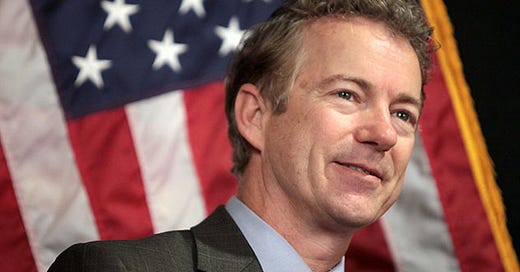Rand Paul’s Presidential Campaign Launch: Good and Bad
Senator Rand Paul's presidential campaign announcement was mixed and fishy, and his foreign policy claims lack credibility.
Keep reading with a 7-day free trial
Subscribe to The Objective Standard to keep reading this post and get 7 days of free access to the full post archives.




